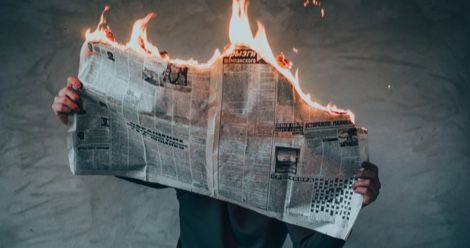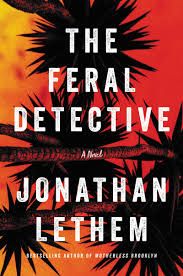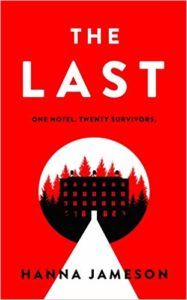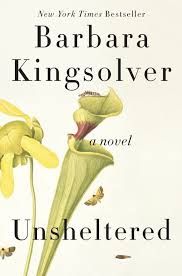
How To Write A Trump Novel Without Mentioning Trump
The specter of Donald Trump is haunting American fiction. As in life, in literary fiction the president is hard to escape—even though Trump himself fears books. And novelists are taking all kinds of tacks.
One strategy is to take refuge in the satirical, as in the Obama/Biden buddy mystery by Andrew Shaffer, Hope Never Dies (2018). Another is to follow characters who literally try to escape from Trump’s influence into remote corners of America. Jonathan Lethem does this in his off-kilter crime novel The Feral Detective (2018).
Then there’s the Trumpless Trump novel. It’s almost as if these authors couldn’t bring themselves to mention His Awfulness by name, though it’s all too clear who they’re referencing. Take The Joker in Salman Rushdie’s The Golden House (2017). This is a newly elected president with a loose tether to reality (and more than a passing resemblance to Batman’s antagonist).
The stakes are even higher in The Last (2019), Hanna Jameson’s dystopian page-turner. The Last gathers an international cast of characters in a Swiss hotel as the world quickly and mysteriously breaks down. Even as they fight for survival, these folks are seething over cultural and political divisions. In particular, the Trump haters blame the Trump voters (without using his name) for the literal end of the world. As the narrator reflects,
“I’ve also come to realize that the non-Americans are stockpiling resentment. They blame us, Tomi and me, for what happened. They look at us and see one person who had voted for this to happen and another who hadn’t done enough to stop it. Maybe I hadn’t. Actually, there’s no maybe about it. None of us did enough to stop it.”
One of the best examples of a novel where Trump’s pervasive influence, though not his name, seeps everywhere, is Barbara Kingsolver’s Unsheltered (2018). Unsheltered tackles many themes familiar from Kingsolver’s other work, such as the fragile ties of family and the importance of environmental stewardship. It’s also very much a novel about Trump. Its critique of the president is channelled through multiple directions:
1) Creating a bloviating Trump-like character called, amusingly, the Bullhorn (no less subtle than Rushdie’s Joker).
2) Making the one Trump acolyte in the book a grotesque and dying man, to suggest the irrelevance of these views.
3) Setting half the novel in the 1870s, another period of great tension between scientific progress and conservatism.
4) Excavating the past for a Trump-like historical figure: a charismatic bully who literally gets away with murder.
5) Using intergenerational conflict to create a hero out of a self-sufficient, anti-consumerist, Cuba-obsessed millennial, who provides a counterpoint to older generations’ failures.
This doesn’t always work. Kingsolver often is too on the nose, with sentences like “When men fear the loss of what they know, they will follow any tyrant who promises to restore the old order.” But Kingsolver and the other post-Obama novelists face a tough balancing act. Trump provides such rich fodder for literary caricaturists, but it’s dangerous to dismiss him as ridiculous. So it’s not surprising that contemporary novels are compelled to reference Trump in some way. The trick is to avoid being overtaken by him.











